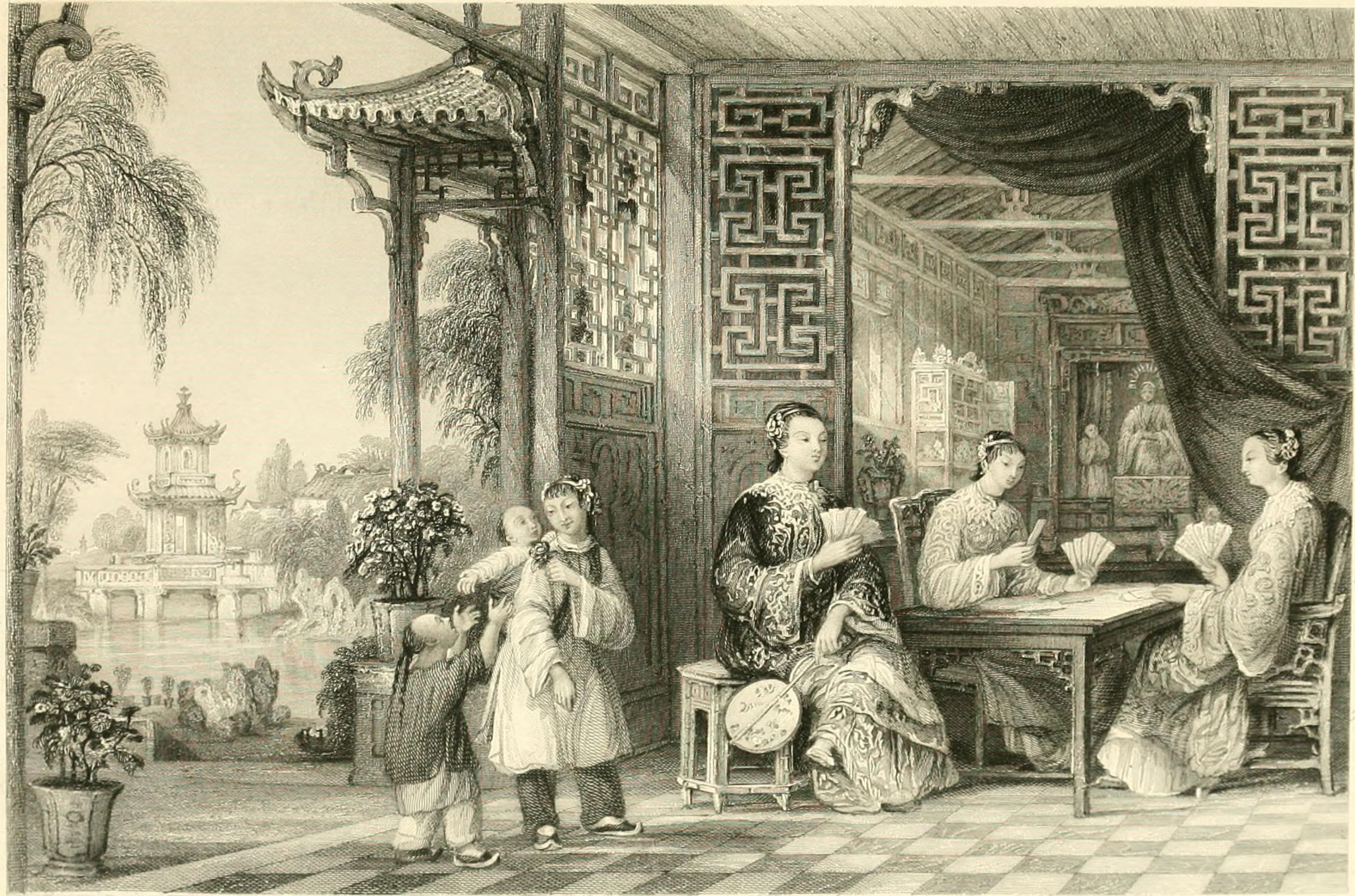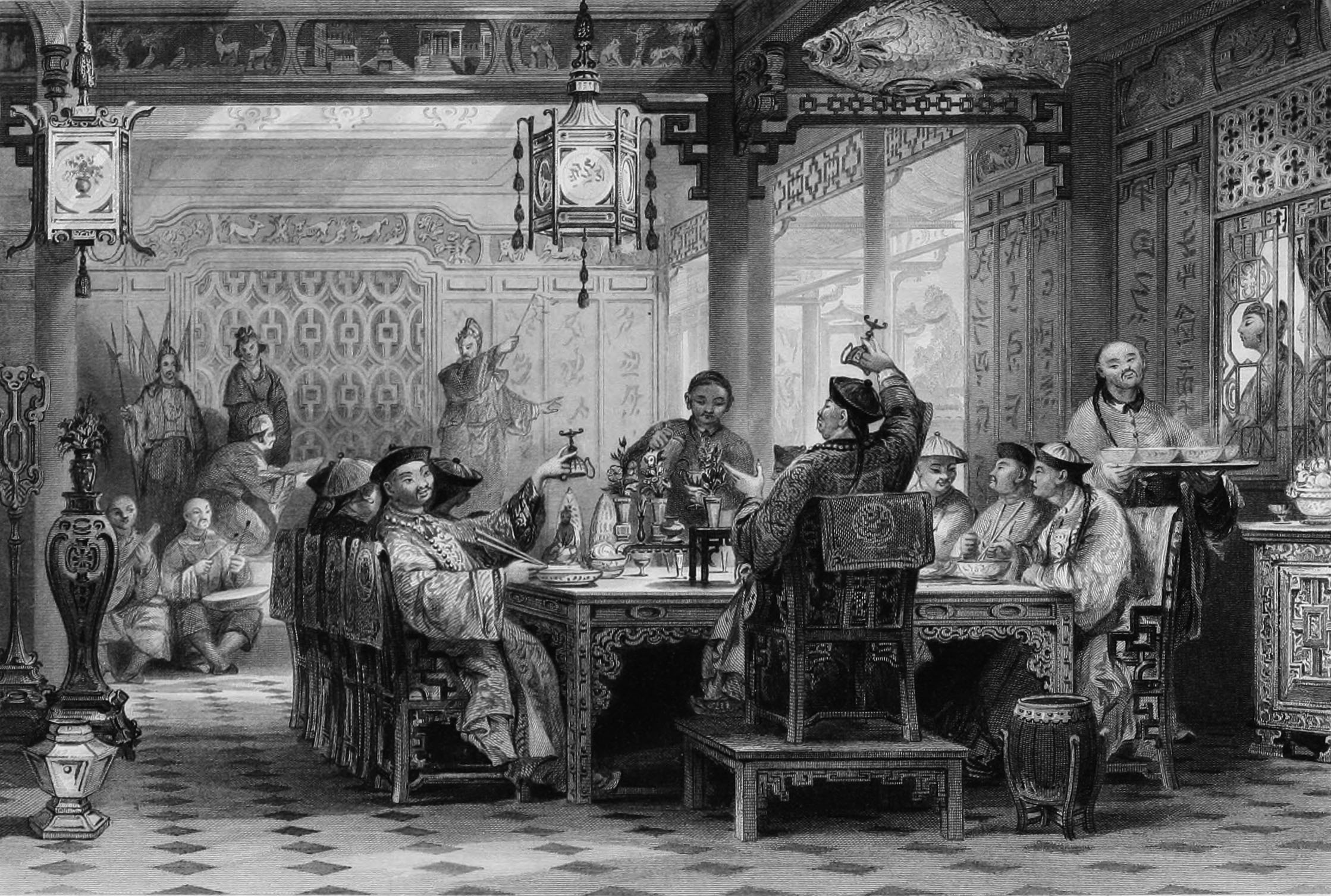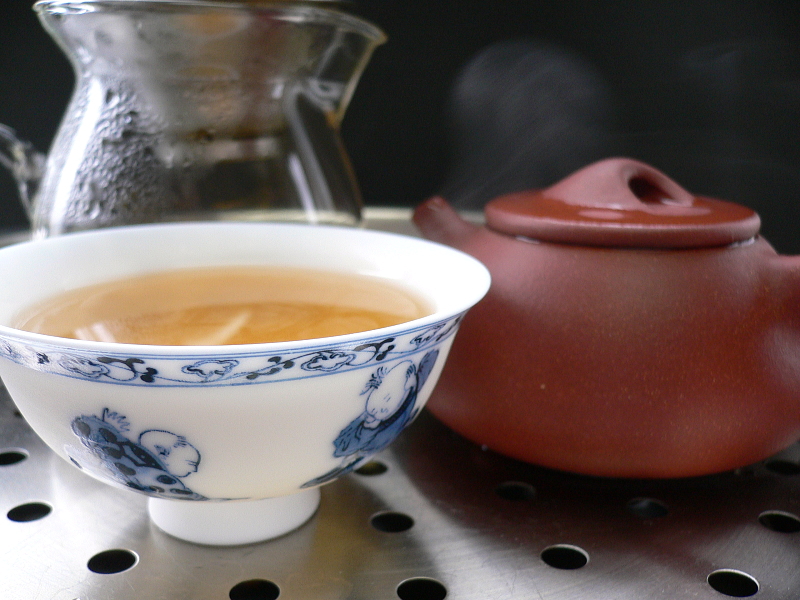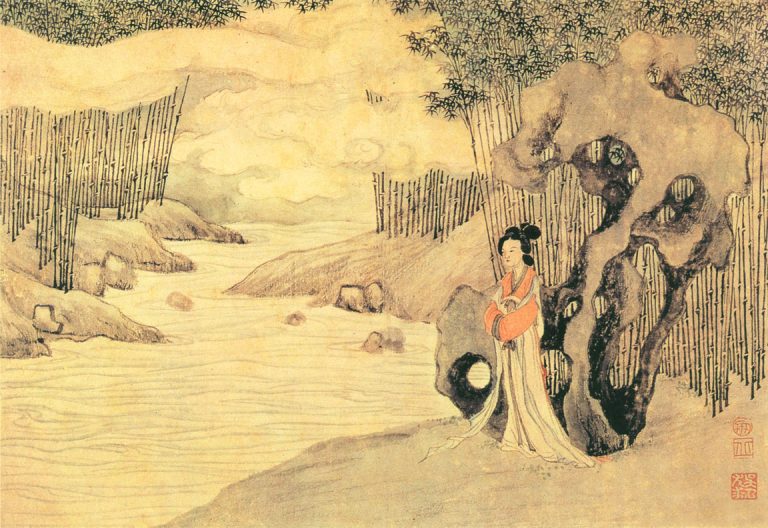Instructions for Chinese Women and Girls (Nǚ jiè 女誡) is an ancient Chinese guidebook for cultivating traditional feminine virtues. Written by polymath Ban Zhao (班昭), it addressed the need for girls to be educated in virtues, and quickly became a lasting reference for raising daughters in China for many dynasties to follow. This series focuses on the virtues of traditional women and their role in harmonizing family and society.
Continued from Ban Zhao’s Precepts for Women (Part I): Cultivating Modesty and Gentleness
The treatment of guests was a telling sign of a woman’s virtue in ancient China. According to Ban Zhao, a woman’s demeanor and modesty in listening to and talking with visitors, her industriousness in serving tea and refreshments, and her wholehearted effort to accommodate her husband’s guests; were the manifestations of her cultivated virtue which not only brought harmony to the home, but also honor to her parents.
On receiving female guests
Ban Zhao instructed women to exhaust courtesy when receiving guests. The ritual of hospitality usually began with the preparation for the visit, during which women would arrange chairs, tables, dishes and bowls with the utmost care.
In opening the conversation, the hostess would inquire about the welfare of her guests since they last met, and listen with courteous attention. In talking about her own affairs, a virtuous woman would not talk at random, but speak in a way befitting her feminine nature.
Success
You are now signed up for our newsletter
Success
Check your email to complete sign up
“To choose her words with care, to avoid vulgar language, to speak at appropriate times, and not to weary others with much conversation may be called the characteristics of womanly words.”
Ban Zhao, Instructions for Chinese Women and Girls

Ban Zhao exhorted women to avoid gathering “for gossip and silly laughter” and to take the treatment of guests as an opportunity to cultivate politeness and selflessness.
“Let a woman modestly yield to others; let her respect others; let her put others first, herself last.”
Ban Zhao, Instructions for Chinese Women and Girls
On being a guest
In visiting others, a virtuous woman would not be eager to receive attention or demand anything. According to Ban Zhao, moderation and etiquette were the greatest qualities of a thoughtful visitor.
An ideal guest would be respectful of the hostess’s time and make her business known after observing all the rules of courtesy. Unless invited to stay longer, a good visitor would depart promptly to avoid causing a disturbance.
When invited to a meal, a woman’s virtue was demonstrated through etiquette. Vigorous self-restraint in the face of an abundance of food, along with the correct use of chopsticks and impeccable posture, spoke of a woman’s grace.
On serving male guests
A virtuous wife would greet her husband’s guests with the greatest courtesy and hospitality. Practicing unconditional cooperation, an industrious woman would quietly manage all the behind-the-scenes work so that her husband could offer his visitors the best possible guest experience.
While today we often perceive women’s deferral to men as a sign of gender inequality; women’s meekness and humility were traditionally considered signs of an elevated and harmonious character. The cultivation of such virtues did not place the female role on a plane of inferiority, but capitalized on a woman’s innate gentle and caring nature to unify the family and complement her husband’s more aggressive efforts in building solid family ties.
Women’s natural inclination to pay attention to detail would also shine forth when serving guests, particularly in seasoning the food and observing proper cooking methods. The pleasing dishes, along with her cleanliness and order in preparing and serving them, demonstrated how well she had cultivated her womanly virtues.

If a visitor was to spend the night, a devoted wife would attend to the guest room to ensure him a comfortable stay, offering hospitality that would bring renown to their household.
In the absence of the husband
A virtuous wife would honor her husband not only in his presence but also in his absence. In receiving the visit of male guests when her husband was away, a woman’s modest dress and manners reflected her purity.
“Let her have ears that hear not licentiousness and eyes that see not depravity. When she goes outside her own home, let her not be conspicuous in dress and manners. When at home, let her not neglect her dress.”
Ban Zhao, Instructions for Chinese Women and Girls
Upon the arrival of a male guest at the door, the wife was not to greet him directly, but to send a child to ask who he was and where he came from. If it was a friend of the family, he was received by the wife herself, who, with tidy hair and dress, politely invited him to the reception room and offered him tea. The guest would then make his business known and promptly depart.

Yet if the guest was a very close friend or relation, it was proper for the wife to invite him to await her husband’s return. Should he decide to leave and come back later, the courteous wife would accompany him to the reception room. By following these simple rules, a woman was said to have wholehearted devotion and correct manners.
Note: The quotes in this article are from Nancy Lee Swann’s English translation of Ban Zhao’s original work.
Stay tuned for Part III, with more of Ban Zhao’s guidance on cultivating traditional feminine virtues.
Continue Reading: Ban Zhao’s Precepts for Women (Part III): On Being a Devoted Wife







